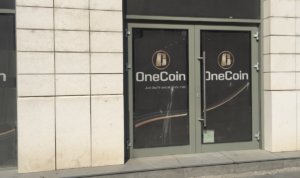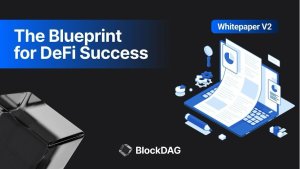US Govt argues OneCoin co-conspirator should not be acquitted
The jury’s determination that Mark Scott is guilty of conspiracy to commit money laundering and conspiracy to commit bank fraud was based on legally sufficient evidence, the US authorities say.

The United States Government has pushed again the attempt of Mark Scott, a defendant in a lawsuit targeting individuals involved in fraudulent cryptocurrency scheme OneCoin, to be acquitted or secure a retrial.
As FinanceFeeds reported in November 2019, Mark Scott was convicted of conspiracy to commit money laundering and conspiracy to commit bank fraud. Scott, a former equity partner at the law firm Locke Lord LLP, laundered approximately $400 million in proceeds of OneCoin through fraudulent investment funds that he set up and operated for that purpose. Scott was paid more than $50 million for his money laundering services, which he used to buy luxury cars, a yacht, and several seaside homes.
In February 2020, he filed a motion for acquittal or retrial.
On March 23, 2020, the US Government filed a document with the New York Southern District Court, detailing why Scott’s motion has to be denied.
The Government notes that the evidence at trial against the defendant was overwhelming. The evidence included the testimony of seventeen witnesses, including one of OneCoin’s top leaders, Konstantin Ignatov. The Government’s evidence also included numerous emails, including emails between Scott and key members of the OneCoin Scheme such as Ruja Ignatova, Irina Dilkinska, and Gilbert Armenta. In addition, the Government’s evidence included bank records and charts which detailed Scott’s network of offshore bank accounts and depicted his laundering of OneCoin Scheme proceeds and his criminal earnings of over $50 million in OneCoin Scheme proceeds that he was paid for his role as a money launderer.
The defendant moves for a judgment of acquittal on the money laundering conspiracy charge, or in the alternative, for a new trial. According to the Government, the jury’s determination that the defendant is guilty was based on legally sufficient evidence that proved his guilt beyond a reasonable doubt. Nor do the facts and circumstances surrounding the jury’s guilty verdict provide any basis whatsoever for the drastic measure of granting of new trial, the Government says.
Scott challenged the jury’s guilty verdict on several grounds, all of which, according to the Government, are meritless.
The defendant argues that the Government failed to offer sufficient evidence to prove the third element of the domestic concealment money laundering object, that the defendant knew that the financial transactions at issue involved proceeds of an unlawful activity. Specifically, the defendant claims that the evidence established, at best, that he was aware that there were “questions about OneCoin.” But the Government says that the defendant is wrong, as the evidence at trial plainly established this element.
As the trial evidence detailed above demonstrates, OneCoin was created to be, and operated as a fraud scheme, the Government explains. The defendant and his co-conspirators, including Armenta, Ruja Ignatova, David Pike, and Irina Dilkinska, worked collaboratively to move OneCoin proceeds through numerous accounts throughout the world with the goal of returning the money to Ruja Ignatova, while simultaneously concealing any connection between the money and OneCoin or Ruja Ignatova. The trial evidence clearly established that the defendant was fully aware that the funds he received from OneCoin were proceeds of an unlawful activity.
First, the defendant was in fact told that OneCoin was a fraud scheme. In April 2016, he received an email from a CPA forwarded to him by Dilkinska, stating in no uncertain terms that OneCoin was a fraud scheme, and outlining the many bases for that conclusion. The defendant also knew that financial institutions were unwilling to bank OneCoin funds. In addition, Gary Gilford, one of Ruja’s employees at RavenR, specifically informed the defendant that the City of London Police had initiated a criminal investigation into OneCoin, and that multiple OneCoin bank accounts throughout the world had been frozen by various financial institutions.
Also, the Government notes that the evidence at trial proved that Scott earned an enormous amount of money for laundering OneCoin proceeds for Ruja Ignatova. He laundered approximately $400 million in OneCoin proceeds, and took approximately $50 million (or 12.5%) for himself, despite earning essentially no profit for his so-called investors.
Lastly, the defendant’s knowledge that the transactions involved the proceeds of unlawful conduct was proven by the defendant’s own lies, misrepresentations, and involvement in forging documents, the Government says. The evidence at trial established that the defendant repeatedly and regularly falsified documents in connection with the receipt and transfer of OneCoin proceeds by the Fenero Funds. For example, the defendant created fake attorney comfort letters from attorneys Martin Breidenbach and Viktor Rashev to provide to Apex.
The defendant claims that the Government also failed to prove that he knew that the Fenero Fund transactions were designed to conceal or disguise the nature, location, source, ownership or control of the proceeds of the unlawful activity. The defendant’s claim is belied by the overwhelming evidence showing that the defendant was aware that the purpose of the transaction was to conceal the source of the funds, the Government says. In fact, as soon as he began working for Ruja Ignatova, Scott engaged in a pervasive and deliberate campaign to mask any connection between the Fenero Funds and Ruja or OneCoin.
The defendant additionally claims that the Government failed to prove “any wire fraud with sufficient nexus to the United States occurred.” The defendant is wrong, according to the Government, as the evidence at trial clearly established a sufficient nexus between the OneCoin fraud scheme and the United States.
At trial, the Government definitively established that OneCoin was not an extraterritorial wire scheme. OneCoin began operating in the United States in or around 2015. Two United States victims, Linda Cohen and William Horn, testified at trial and described about their investments in the scheme, the promoters who introduced them to OneCoin, and their ultimate losses related to their investments. The evidence at trial also included testimony regarding OneCoin meetings and conferences held in the United States, as well as United States-based promoters.
The proceedings continue at the New York Southern District Court.









